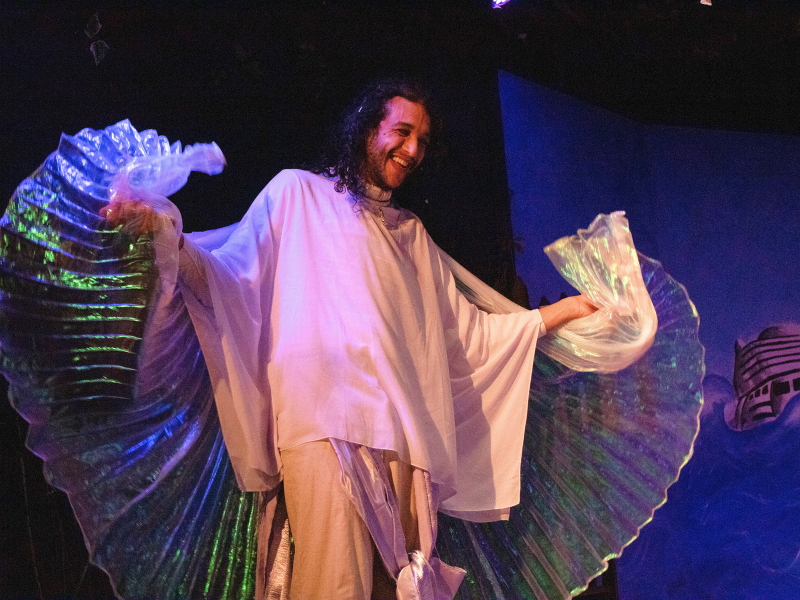In the end, that proved his only purpose: leading Alice from one place to another for lackluster reasons, never letting any particular location settle in or leave an impact. The story would have been better suited to a solitary setting. Confined in one place, the dialogue spent on travel could have been spent diving into the characters, their backstories, and their growth. As it stood, the characters lacked flesh and were presented in only fleeting glimpses throughout the narrative, allowing for no attachment to their stories or hardships.
Plot-points for Sandro (Matteo Acuña), which were meant to instill grief, struck out of the blue and left the viewer more confused than sad. A romance between Lisha (hk goldstein) and Reem (Coco Justino) had the foundation for the complex dichotomy of two characters born to enemy nations finding the ground in which love can still stem. Instead, one grieved while the other just said “sorry.” The Djinn, Istama’a (Khane Berry), who was meant to be the seeker of deep truths, felt like a skimp on proper character development.
The Djinn arrived during dream scenes to force the characters to face the inner truths they’d long avoided. These truths came in the form of poorly explained objects. Paper cranes, a rosary, and other miscellaneous things. The only object given any context was Reem’s Palestinian flag, which was plucked from the box with the joyous cry that Palestine would one day be free. In payment for these objects of truth, the characters were required to give a confession of another truth. They babbled out the lessons they were supposed to be learning without any plot-driven introspection.
The flattest of all characters, unfortunately, was Alice. A main character is supposed to drive the plot of a narrative. Alice was trampled by it. She had no agency over her own actions, and was dragged from scene to scene (with intermittent unwarranted dance breaks) for no other purpose than to be a vehicle and dart board for political and religious commentary. Additionally, her motives were in poor taste. She’d begun her study on Queer Arab people not to help the Queer communities, but rather because she’d romanticized the whimsy of the Middle East and loved the fables of the land.
The script was not the only discordant element. Lines were often a little rough around the edges in their delivery, often lacking the emotion and conviction required of certain scenes. In some moments, blocking gave little aid to these issues. Characters would cheat out to an extreme and project their monologues or lines solely to the audience instead of to the character they were meant to be having an intimate moment with, really driving home the soapbox feel of the script.

